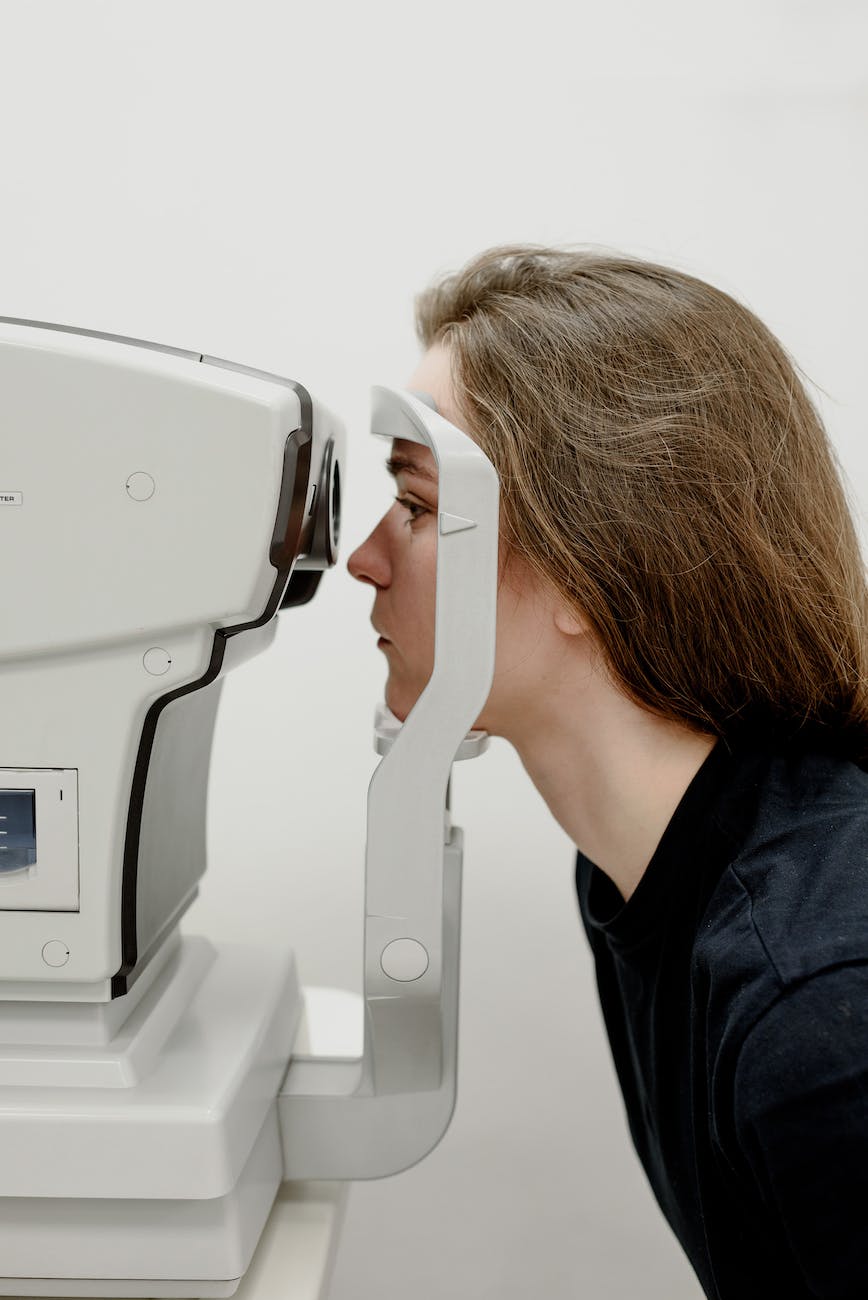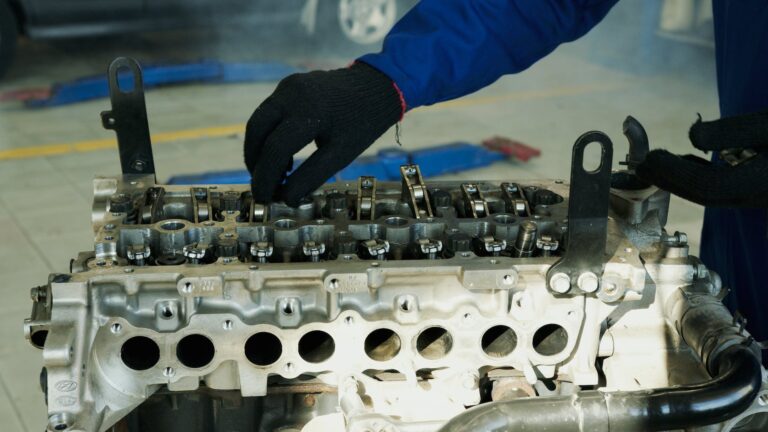Understanding Car Diagnostic Scanners
When it comes to car maintenance and engine diagnostics, a car diagnostic scanner plays a crucial role in identifying and resolving issues. These devices, also known as OBD scanners, are designed to communicate with the computer system in a car and retrieve information about its performance and health.
What is a Car Diagnostic Scanner?
A car diagnostic scanner is a portable device that can be easily connected to a vehicle’s onboard computer system. It utilizes the On-Board Diagnostics (OBD) system, which is a standardized system in all cars manufactured after 1996. The scanner can read and interpret diagnostic trouble codes (DTCs) that are generated by the car’s computer system when a malfunction is detected. These codes provide valuable insights into the specific issues affecting the vehicle’s performance and can guide mechanics or car owners in their troubleshooting process.
How Does a Car Diagnostic Scanner Work?
Car diagnostic scanners work by establishing a connection between the scanner and the car’s OBD system. The scanner is typically connected to the OBD port, which is usually located underneath the dashboard or near the steering wheel. Once connected, the scanner can access the car’s computer system and retrieve important information.
Upon establishing a connection, the car diagnostic scanner communicates with the car’s computer and retrieves diagnostic trouble codes. These codes provide information about specific malfunctions or issues within the vehicle. The scanner then displays the codes on its screen, allowing the user to understand the problem and take appropriate action.
In addition to reading and interpreting trouble codes, car diagnostic scanners can also provide real-time data on various parameters of the car. This data includes engine RPM, coolant temperature, fuel system status, and more. By monitoring these parameters, car owners or mechanics can gain valuable insights into the overall performance and health of the vehicle.
Car diagnostic scanners are an essential tool for car owners and mechanics alike. They provide quick and accurate information about the condition of the vehicle, allowing for efficient troubleshooting and repairs. By utilizing a car diagnostic scanner, car owners can save time and money by identifying issues early on and addressing them promptly. To explore some of the top car diagnostic scanners available in the market, refer to our section on Top Car Diagnostic Scanners on the Market.
Benefits of Using a Car Diagnostic Scanner
When it comes to maintaining and troubleshooting your vehicle’s engine, using a car diagnostic scanner can offer several advantages. These scanners allow you to access and interpret the diagnostic codes generated by your vehicle’s onboard computer system. Let’s explore the benefits of using a car diagnostic scanner.
Cost Savings and Convenience
Owning a car diagnostic scanner can save you money by enabling you to perform your own diagnostics with ease. Instead of immediately heading to the mechanic every time the check engine light illuminates, you can use the scanner to retrieve the codes that triggered the light and determine the problem yourself. This empowers you to decide whether the issue requires immediate attention or if it can be addressed at a later time, potentially saving on unnecessary repair costs (Tear-A-Part).
Additionally, car diagnostic scanners are portable and convenient. Their small size allows you to bring them along during road trips, providing peace of mind in case the check engine light comes on while you’re away from home. This convenience can help you avoid unexpected breakdowns and potentially costly repairs (Tear-A-Part).
Quick and Accurate Troubleshooting
Car diagnostic scanners provide quick and accurate troubleshooting capabilities. By reading the codes generated by your vehicle’s computer system, you can pinpoint potential issues and identify the specific area that requires attention. This eliminates the need for extensive manual inspection, saving both time and effort in the diagnostic process (Tool Rage).
Determining Severity of Issues
The ability to read your own codes with a car diagnostic scanner allows you to determine the severity of a problem. Sometimes, the check engine light indicates a serious issue that requires immediate attention, while other times it may be a minor problem that can be addressed later. Understanding the severity of the issue helps you prioritize repairs and avoid unnecessary panic or delay in addressing critical problems (Tear-A-Part).
Wide Compatibility with Vehicles
Car diagnostic scanners are compatible with a wide range of vehicle makes and models, thanks to the standardized On-Board Diagnostic (OBD-II) system implemented by vehicle manufacturers since 1996. This standardization means that you can purchase one scanner and use it on multiple vehicles, eliminating the need to buy a new scanner for each car. The versatility and compatibility make car diagnostic scanners a valuable tool for both individual car owners and professional mechanics (Tear-A-Part).
By utilizing a car diagnostic scanner, you can save money, time, and effort in diagnosing potential issues with your vehicle’s engine. The convenience, accuracy, and compatibility of these scanners make them an essential tool for car owners and mechanics alike.
Types of Car Diagnostic Scanners
When it comes to car diagnostic scanners, there are several types available on the market. Each type of scanner offers different functionalities and features to help car owners diagnose and troubleshoot issues with their vehicles. Let’s explore three common types of car diagnostic scanners: basic code readers, advanced diagnostic scanners, and wireless OBD2 scanners.
Basic Code Readers
Basic code readers are entry-level car diagnostic scanners that perform essential functions. These scanners are designed to read and clear trouble codes from a vehicle’s onboard computer system. They provide valuable information about the specific issues causing the check engine light to illuminate. Basic code readers are typically more affordable compared to other types of scanners.
While basic code readers are limited in their capabilities, they are still useful for car owners who want to perform basic diagnostic tasks. These scanners can help identify common issues such as engine misfires, faulty sensors, and other malfunctions. However, they may not provide advanced features like resetting service lights or performing complex system tests.
Advanced Diagnostic Scanners
Advanced diagnostic scanners offer more comprehensive capabilities compared to basic code readers. These scanners can retrieve and interpret a wide range of error codes from various systems in the vehicle, including the engine, transmission, ABS system, and more. They provide real-time data about the status and performance of different vehicle components.
In addition to reading and clearing trouble codes, advanced diagnostic scanners can perform advanced functions. These may include resetting service lights, programming keys, performing system tests, and accessing advanced features specific to certain vehicle makes and models. Advanced diagnostic scanners are suitable for professional mechanics and car enthusiasts who require in-depth diagnostic capabilities.
Wireless OBD2 Scanners
Wireless OBD2 scanners offer the convenience of wireless connectivity and advanced abilities for an affordable price (Motor1.com). These scanners connect to the vehicle’s OBD2 port and communicate with a smartphone or tablet via Bluetooth or Wi-Fi. This wireless connection allows users to access and interpret diagnostic information directly on their mobile devices.
Wireless OBD2 scanners often come with dedicated mobile apps that provide a user-friendly interface for viewing and analyzing real-time data. These scanners offer features like reading and clearing trouble codes, monitoring live data, displaying vehicle performance parameters, and even performing advanced functions like programming keys. They are popular among DIY car enthusiasts who want a portable and versatile diagnostic tool.
When choosing a car diagnostic scanner, it’s important to consider your needs, budget, and the compatibility of the scanner with your vehicle. Evaluate the desired features and functionalities to ensure you select a scanner that meets your specific requirements. For a comprehensive list of top car diagnostic scanners on the market, check out our article on engine diagnostics.
By investing in a reliable car diagnostic scanner, car owners can perform quick and accurate troubleshooting, potentially saving time and money. These scanners empower car owners to understand the severity of issues and take appropriate action. Whether you opt for a basic code reader, an advanced diagnostic scanner, or a wireless OBD2 scanner, having a diagnostic tool at your disposal can enhance your car maintenance experience.
Top Car Diagnostic Scanners on the Market
When it comes to car diagnostic scanners, there are several options available, each offering different features and functionalities. Here are some of the top car diagnostic scanners on the market:
Autel AutoLink AL319
The Autel AutoLink AL319 is recommended as the best budget car diagnostic scanner, providing basic diagnostic functions and compatibility with most vehicles made after 1996. It allows users to retrieve generic and manufacturer-specific codes, view freeze frame data, and perform I/M readiness checks. The AL319 is user-friendly and features a compact design, making it a great choice for DIY car owners looking to perform basic troubleshooting tasks.
BlueDriver Bluetooth Professional OBDII Scan Tool
The BlueDriver Bluetooth Professional OBDII Scan Tool is praised for its ease of use and compatibility with both Android and iOS devices, allowing users to diagnose and monitor their vehicles in real-time. It offers a wide range of features, including reading and clearing trouble codes, performing enhanced diagnostics, and providing detailed repair reports. The BlueDriver scan tool also provides access to a database of verified fixes specific to your vehicle’s make, model, and trouble code.
Foxwell NT301
The Foxwell NT301 is highlighted for its comprehensive diagnostics and wide vehicle coverage. It supports all OBDII protocols and provides a full OBDII diagnosis for most vehicles. With the NT301, users can read and clear trouble codes, retrieve live sensor data, and access freeze frame data. The user-friendly interface and compact design make it a convenient tool for both professional technicians and car enthusiasts alike.
Innova 3150f
The Innova 3150f is recommended for its advanced features, making it suitable for professional technicians and enthusiasts. In addition to basic code reading and clearing, the 3150f offers advanced functions such as ABS and SRS code reading, live data streaming, and vehicle health monitoring. It is compatible with most domestic, Asian, and European vehicles, and provides access to a comprehensive repair solutions database.
Launch X431 PROS Mini
The Launch X431 PROS Mini is praised for its extensive diagnostic capabilities, making it a valuable tool for professional technicians. It offers advanced ECU coding and programming, bi-directional control, and compatibility with a wide range of vehicle models. The X431 PROS Mini provides accurate and comprehensive diagnostics, allowing users to troubleshoot complex issues effectively.
Autel MaxiCOM MK808BT
The Autel MaxiCOM MK808BT is a versatile car diagnostic scanner that combines advanced diagnostics with Bluetooth connectivity. It offers a wide range of functions, including full-system diagnostics, special functions, and service functions. The MK808BT supports a vast array of vehicle makes and models, making it suitable for professional technicians and advanced DIYers.
When choosing a car diagnostic scanner, consider your specific needs, budget, and desired features. It’s important to ensure compatibility with your vehicle’s make and model. Whether you’re a car enthusiast or a professional technician, these top car diagnostic scanners provide the tools necessary to diagnose and troubleshoot your vehicle effectively.
Choosing the Right Car Diagnostic Scanner
When it comes to selecting the right car diagnostic scanner, there are several factors to consider. By understanding your needs and budget, the compatibility with your vehicle, and the desired features and functionality, you can make an informed decision that best suits your requirements.
Consider Your Needs and Budget
Before purchasing a car diagnostic scanner, it’s important to assess your specific needs and set a budget. Consider the level of diagnostics you require. Are you a DIY enthusiast looking for basic code reading capabilities, or do you need advanced diagnostics for professional use?
For those on a budget, there are reliable options available that offer basic diagnostic functions at an affordable price. The Autel AutoLink AL319, for example, is highly recommended as the best budget car diagnostic scanner. It provides basic diagnostic functions and compatibility with most vehicles made after 1996 (Car and Driver).
Compatibility with Your Vehicle
Ensure that the car diagnostic scanner you choose is compatible with your vehicle. Most scanners support the standard OBDII protocols, which are used by vehicles manufactured after 1996. However, it’s essential to verify compatibility with your specific make and model.
The compatibility information can usually be found in the product descriptions or specifications. Additionally, you can refer to the manufacturer’s website or contact customer support for any compatibility queries.
Desired Features and Functionality
Consider the features and functionality that are important to you. Different car diagnostic scanners offer varying capabilities beyond basic code reading. Some scanners provide live data streaming, ABS and SRS code reading, vehicle health monitoring, and even advanced ECU coding and programming.
Here are a few popular car diagnostic scanners that offer a range of features:
| Car Diagnostic Scanner | Features |
|---|---|
| Autel AutoLink AL319 | Basic code reading and compatibility with most vehicles made after 1996 |
| BlueDriver Bluetooth Professional OBDII Scan Tool | Compatibility with Android and iOS devices, real-time monitoring, and advanced diagnostics |
| Foxwell NT301 | Comprehensive diagnostics and wide vehicle coverage, supporting all OBDII protocols |
| Innova 3150f | Advanced features such as ABS and SRS code reading, live data streaming, and vehicle health monitoring |
| Launch X431 PROS Mini | Extensive diagnostic capabilities, including advanced ECU coding and programming, bi-directional control, and compatibility with a wide range of vehicle models |
These scanners are highly regarded for their performance and functionality (Car and Driver).
By considering your needs, budget, compatibility, and desired features, you can make an informed decision when choosing the right car diagnostic scanner. Remember to research and read customer reviews to ensure the scanner meets your expectations. With the right diagnostic tool, you can effectively troubleshoot and diagnose issues with your vehicle, saving time and money on unnecessary repairs.
Tips for Using a Car Diagnostic Scanner
To effectively utilize a car diagnostic scanner and make the most of its capabilities, it’s important to follow some key tips. Whether you’re a car owner or a professional mechanic, these guidelines will help you navigate the diagnostic process efficiently and accurately.
Familiarize Yourself with the Scanner
Before attempting to diagnose any issues with your vehicle, take the time to familiarize yourself with the functions and features of your specific car diagnostic scanner. Read the user manual thoroughly to understand its operation and any specific instructions provided by the manufacturer. This will ensure that you have a clear understanding of how to navigate through the scanner’s menu, interpret the results, and perform necessary tasks.
Follow Proper Connection Procedures
To obtain accurate data from your car’s onboard computer, it’s crucial to establish a proper connection between the scanner and the vehicle’s diagnostic port. Locate the diagnostic port, which is typically found underneath the dashboard or near the steering column. Ensure that the engine is off before connecting the scanner. Follow the instructions provided by the scanner manufacturer to connect the device securely and establish communication with the vehicle’s computer system.
Interpret and Understand Error Codes
Once the scanner is connected and communication is established, it will retrieve error codes stored in the vehicle’s computer system. Error codes, also known as diagnostic trouble codes (DTCs), indicate specific issues or malfunctions in various vehicle components (Tear-A-Part). Refer to the scanner’s manual or online databases to interpret these codes accurately. Understanding the meaning of the error codes will help you identify the problem areas and take appropriate action for troubleshooting and repairs.
Utilize Live Data and Advanced Functions
Many advanced car diagnostic scanners provide the capability to access and analyze live data from the vehicle’s sensors and components. This feature allows you to monitor real-time information about the engine’s performance, fuel system, emissions, and more. Take advantage of this functionality to observe data such as engine RPM, coolant temperature, oxygen sensor readings, and fuel trim values. Analyzing live data can provide valuable insights and aid in diagnosing complex issues.
Additionally, explore the advanced functions offered by your diagnostic scanner. Some scanners allow you to perform specific tests, such as cylinder balance tests, EVAP system tests, or ABS system tests. These advanced functions can help pinpoint the root cause of a problem and streamline the troubleshooting process.
By following these tips, you can maximize the effectiveness of your car diagnostic scanner and efficiently diagnose issues with your vehicle. Remember to refer to the scanner’s user manual for specific instructions and utilize the information provided by the error codes to guide your troubleshooting efforts. Whether you’re a DIY car enthusiast or a professional mechanic, a reliable car diagnostic scanner is an invaluable tool for identifying problems and maintaining the health of your vehicle.







